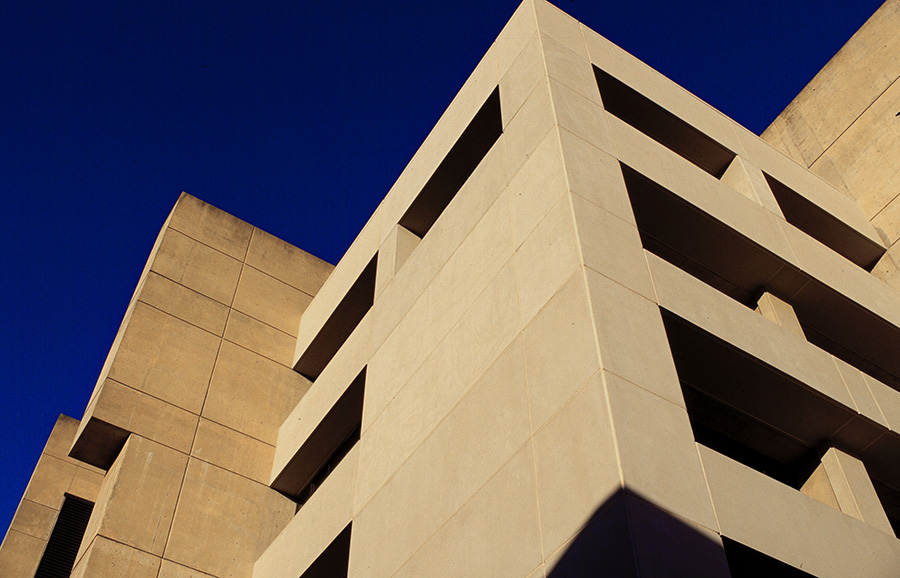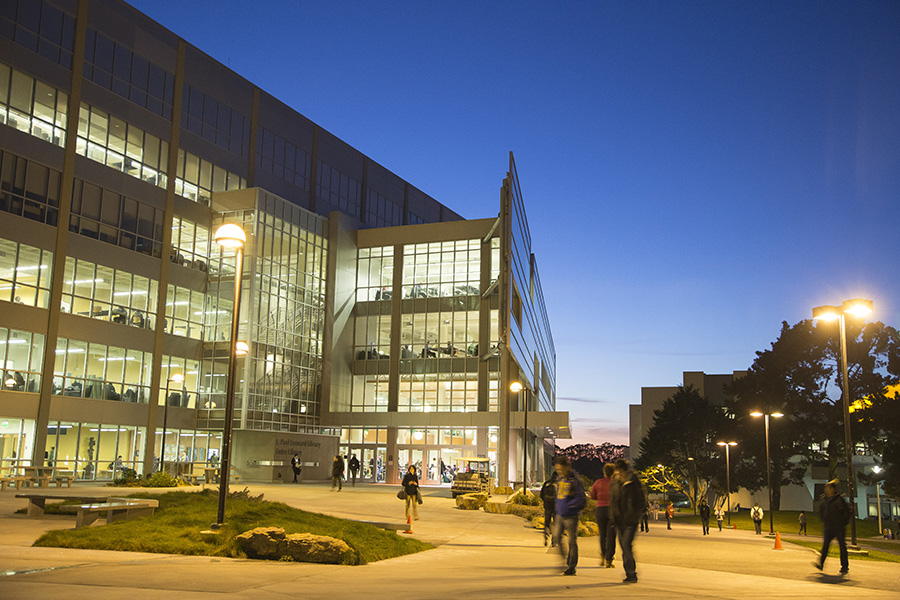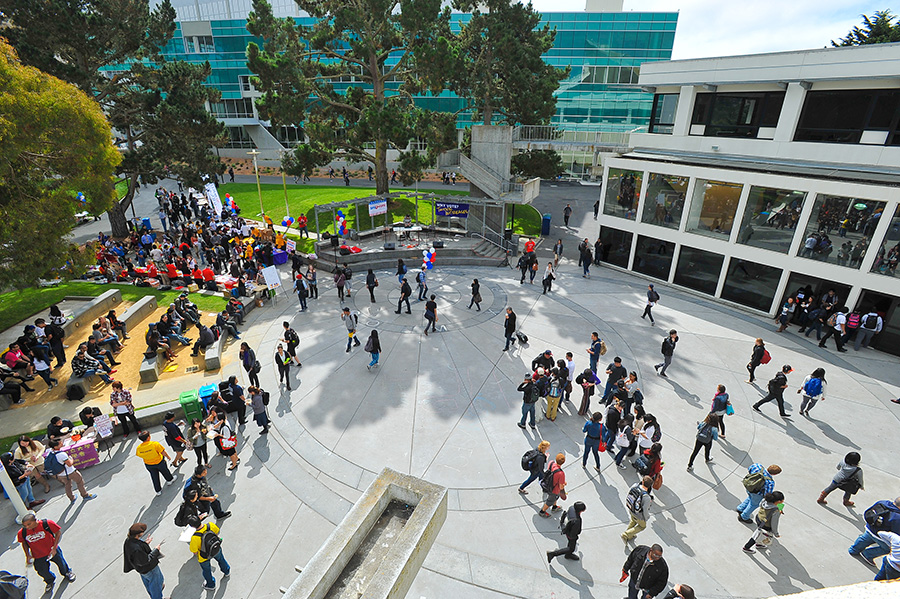College of Science & Engineering
Engineering is about building propulsion systems that send people to Mars, making zero-emission cars that run on electricity, creating a medical device that removes a blood clot in a beating heart, establishing a super-cold storage system to store vaccines, constructing structures and transportation systems that are safe and eco-friendly, and coming up with the next ubiquitous, low-power-consumption communications system that connects humans across the world at low cost.
Some highlights:
- CE (Civil Engineering) develops a strong theoretical and practical foundation for developing engineering solutions for structural, geotechnical, environmental, and transportation systems.
- CE faculty are first-rate educator-scholars from top PhD programs with outstanding industry experience.
- CE faculty received grants and funding from the NSF, NIH, Dept. of Education, NASA, LBL, City of San Francisco, Federal Highway Administration’s University Transportation Center, State Department of Transportation, and private companies.
- Research lab features: real-time hybrid simulation testing facility, mobile remote shake table laboratory, smart floor vibration testing facility, 3D printers, laser cutters, and Transportation Planning & Engineering Lab.
- The CE program has a complete suite of design software including SAP2000 and ETABS.
- CE program features SF State Scholars program which students can earn BS and MS in 5 years.
- CE senior design projects have won numerous awards including the Earthquake Engineering Research Institute’s Best Seismic Performance Award and National Timber Bridge Design Competition.
- CE students’ research efforts have demonstrated in project showcases and research competitions including 1st place in CSU research competition and SFSU CoSE showcase.
- CE program has specific scholarships, Femineers, American Public Works Association, Filanc Leadership and active internships.
- CE Alums work for Caltrans, BART, City and County of San Francisco, KPW, AECOM, Shimmick, ENGEO, Hensel Phelps and many other public and private companies.
- CE Alums are accepted into first-rate graduate programs such as UCs, Stanford, Virginia Tech, and numerous other institutions.
Access the list of the major requirements to better understand the structure of the major.
The roadmap puts all of your graduation requirements into an easy-to-follow semester-by-semester plan so you know what to take to stay on track. Whether you are a freshman or a transfer student, you'll be able to find a roadmap that best fits you.
Besides your major requirements, students must complete their GE and University requirements. Be sure to make sure you've completed all of these requirements for graduation.
To learn more about this major, check out the major department’s website below. You can also find out how you can access their faculty advisors who can assist you not just with course choices, but also answer questions about the field and discuss your career plans.
School of Engineering
Science & Engineering Innovation Center, SEIC 311
Phone: (415) 338-1228
Email: engrasst@sfsu.edu
Website: https://engineering.sfsu.edu/, https://engineering.sfsu.edu/civil-engineering
Student Services Coordinator: Raul Contreras III
Freshmen Student Advising Information
After choosing “Basic Subjects” GE courses in Steps 1-3 of your Orientation process (if you haven’t done so, log onto your Orientation Profile page to follow the “Pre-Orientation Advising Module”), STEP 4 Choosing Major Classes will show you if there are any classes you can take to satisfy major requirements for your first and/or second semester.
Once you have determined your Roadmap above, review the first section below and write down any course recommendations based on your corresponding major roadmap on your Freshmen Class Planner worksheet.
First Semester Course Recommendations
All Roadmaps
| Major Class & Title | Units | Other Requirement Area(s) Met |
| ENGR 100 - Introduction to Engineering | 1 unit | Major Core |
| ENGR 101 - Engineering Graphics | 1 unit | Major Core |
| MATH 226 - Calculus I#1, #2, #3, #4 OR MATH 197 - Prelude to Calculus I#3, #4 OR MATH 199 – Pre-Calculus#3, #4 |
4 units OR 3 units OR 4 units |
Major Core Prerequisite for MATH 226 Prerequisite for MATH 226 |
| If there are any course(s) listed above, please enter this information onto “Step 4” of your Freshmen Class Planner. |
Advisor Footnotes:
- #1 AP Calculus AB (or AB subscore), or BC score of 4 or 5 (but not 3) satisfies Math 226 requirement (4 units)
- #2 Prerequisite for MATH 226 is high school pre-calculus with “B” or better, or high school calculus with a grade of “C” or better; or a college-level pre-calculus course with a “C” or better
- #3 Take the First-Year Math Advising Exercise before choosing this course
- #4 1-unit Supplemental Instruction courses (SCI) are offered for these classes as additional support. These courses can be found in the SFSU Class Schedule (https://webapps.sfsu.edu/public/classservices/classsearch) by searching for the "SCI" department prefix.
If any of the class(es) above ends up being FULL by the time you register, consider choosing more General Education courses to build up your schedule
- There are no other alternate courses for this major
- If more units are needed, consider General Education courses from the areas suggested in the "GE Area Recommendations" section below
Once you have made your course choices for Steps 1-4, you may already have between 12-15 units chosen for your first semester—about 4 to 5 classes.
If more units are needed, you will proceed to "Step 5 - Choosing GE Courses" from your Orientation Advising Module after considering the following recommendations...
| GE Area | Advisor Notes |
| A1 Oral Communication | Covered in “Step 3” on the Freshmen Class Planner |
| A2 Written English Communication | Covered in “Step 1” on the Freshmen Class Planner |
| A3 Critical Thinking | Covered in “Step 3” on the Freshmen Class Planner |
| B1 Physical Science | Met within major core courses |
| B2 Life Science | Choose any |
| B3 Laboratory Science | Met within major core courses |
| B4 Quantitative Reasoning | Covered in “Step 2” on the Freshmen Class Planner |
| C1 Arts | Choose any |
| C2 Humanities | Choose any#1 |
| D Social Sciences | Choose any#1 |
| D US History | Choose any#1 |
| E Lifelong Learning & Self-Development (LLD) | Covered in “Step 1” on the Freshmen Class Planner |
| F Ethnic Studies | Choose any#1 |
| US/CA Government | Choose any |
Advisor Footnotes:
- #1 Metro Academy students—these areas may be covered in your Metro Ed Plan
Second Semester Course Recommendations
If MATH 226 is completed in the first semester…
| Major Class & Title | Units | Other Requirement Area(s) Met |
|---|---|---|
|
CHEM 115 – General Chemistry I: Essential Concepts of Chemistry OR#1 CHEM 180 - Chemistry for Energy and the Environment |
5 units
3 units |
Not GE
GE: Area B1 & B3 |
| ENGR 271 – Introduction to MATLAB | 1 unit | Major Core |
| MATH 227 - Calculus II | 4 units | Major Core |
|
PHYS 220 - General Physics with Calculus I#2 & PHYS 222 - and General Physics with Calculus I Laboratory#2 |
4 units | Major Core GE: Area B1 & B3 |
If MATH 226 is NOT completed in the first semester…
| Major Class & Title | Units | Other Requirement Area(s) Met |
|---|---|---|
|
CHEM 115 – General Chemistry I: Essential Concepts of Chemistry OR#1 CHEM 180 - Chemistry for Energy and the Environment |
5 units
3 units |
Not GE
GE: Area B1 & B3 |
| MATH 198 – Prelude to Calculus II#3 OR MATH 226 - Calculus I#4, #5 |
4 units OR 4 units |
Prerequisite for MATH 226 Major Core Course |
Advisor Footnotes:
- #1 Most Engineering students take CHEM 180 instead of CHEM 115
- #2 Take both Physics Lab and Lecture at the same time
- #3 Prerequisite for MATH 198 is MATH 197 with a “C” or better
- #4 AP Calculus AB (or AB subscore), or BC score of 4 or 5 (but not 3) satisfies Math 226 requirement (4 units)
- #5 Prerequisite for MATH 226 is high school pre-calculus with “B” or better, high school calculus with a grade of “C” or better; or a college-level pre-calculus course with a “C” or better (i.e. MATH 198 or MATH 199)
If any of the class(es) above ends up being FULL by the time your register, consider choosing more General Education courses to build up your schedule
| AP exam (score 4 or 5) | Course Equivalencies |
|---|---|
| Calculus AB (or subscore) or BC | Math 226 (4 units) |
| Physics C: Mechanics | PHYS 220 and 222 (4 units) |
Engineering has mandatory advising every semester during the advising weeks in November in the Fall semester & in April in the Spring Semester.
Some career fields are:
- Structural engineers
- Construction engineers
- Water resource engineers
- Environmental engineers
- Transportation engineers
- Bridge engineers
- Geotechnical engineers
Transfer Student Advising Information
Please see the box above labeled “Major Curriculum/Roadmaps & GE/University Requirements” for information on what courses to take in your first semester at SF State. View our Frequently Asked Questions for Transfers for helpful tips and additional information.




